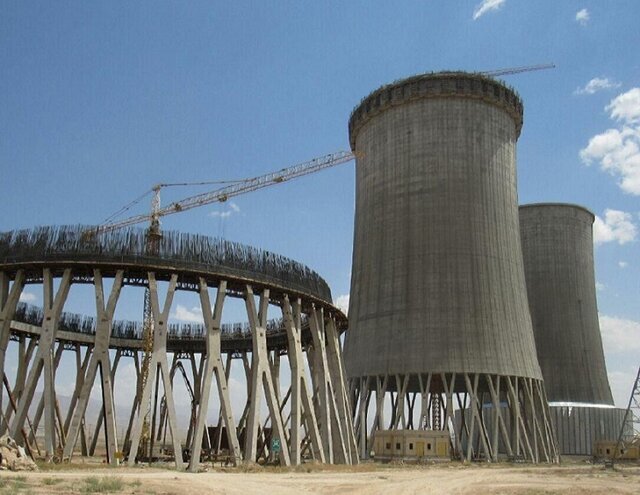Sirik power plant highlighting Iran-Russia energy cooperation

In August 2016, Iran had signed a memorandum of understanding (MOU) with Russia for implementing a 1,400-megawatt power plant project in Iran’s southern Hormozgan Province.
Based on the signed agreement, the Russian Company Technopromexport pledged to invest up to €1.2 billion in the project of Sirik power plant.
The construction of the mentioned thermal power plant started in February 2017; however, it came to a halt due to some administrative and funding problems from the Russian side.
After years of postponing, eventually, the Russian side came to the conclusion that the contractor [for the project] should be replaced. On this basis, a new contractor was selected, which was also approved by Iran.
Once fully operational, the Sirik project would add some 12 terawatt-hours (TWh) of power to Iran’s current generation capacity.
In last September, Iranian Energy Minister Reza Ardakanian had announced that Russia has changed the contractor that was supposed to work on the Sirik power plant and the new contractor was going to start working on the project in the coming weeks.
The construction operation of the power plant then was started on June 10 with the order of President Hasan Rouhani and in a ceremony attended by the energy minister.
The project is to be completed in 55 months using a Russian government loan and by Russian and Iranian contractors and then will be handed over to the Iranian employer.
As stated by the managing director of Iran’s Thermal Power Plants Holding Company (TPPH), Iran and Russia, as two neighboring countries, along with the expansion of strategic relations, are always trying to remove obstacles to improving economic and trade cooperation, one of which is the development of bilateral cooperation in the field of energy, especially the construction of a joint power plant.
In a situation where the electricity industry is facing a serious shortage of financial resources for the development of electricity generation projects due to the inadequate increase in electricity sales tariffs and oppressive sanctions, the use of different methods of providing resources to advance the projects envisaged in this sector is of particular importance, Mohsen Tarztalab noted.
Implementing the plan to build Sirik power plant using foreign financial resources has been the most economical way of financing this plan due to the prevailing economic conditions in the country, lack of available resources for government to spend on construction projects and lack of direct access to foreign exchange resources, the official further explained.
Based on the Sixth Five-Year National Development Plan (2016-2021), every year 25,000 MW should be added to the country’s power generation capacity, of which 3,700 MW should be generated by the thermal power plants, he said, adding, “In this regard, one of the ways provided in the development plan law to generate such capacity is to use and attract domestic and foreign financial resources.”
To build nearly 4,000 MW of new power plant capacity each year, €3.5 billion in resources are needed in the power generation sector alone. This is important while all the revenue sources of the thermal power generation company are less than one-sixth of the required resources in the budget each year.
For this purpose, after four years of negotiations and consultations, it was decided to provide about 85 percent of the 1.4 billion-euros needed for the construction of the Sirik power plant, ie 1.2 billion euros will be financed by the Russian side and the rest from the government's internal resources, Tarztalab stated.
Explaining the benefits of using foreign financial resources, he said: "Using foreign financial resources has several benefits, including the entry of new financial resources, maintaining the sovereign role of the government, not considering investment risk, full knowledge of how to implement the project, complete and centralized technical and financial control, adherence to the technical and implementation system of the country, timely payment of project costs, completion of the project with minimal deviation from the schedule compared to similar projects, compliance with international standards from the conclusion of the contract to the implementation, in addition to job creation.
Benefiting from the foreign funds through various methods can contribute to the economic development of the country, the official underlined, and said, “For example, in the field of "capital", the foreign financier brings financial resources to the host country, and given that a large part of these resources is spent domestically, it increases productivity, employment and income in the society.”
Sirik power plant will be built in one of the deprived areas located on the shores of Makran in a situation where this project, as a supplier of one of the most important infrastructures needed for the economic growth of Makran beaches, will surely flourish the economic capacities of this region.
This project is one of the most effective and key steps in the direction of comprehensive development of this important and strategic region.
Sirik project has been described as a symbol of Russia’s growing inclination to invest in Iran at a time the United States is piling massive economic pressure on the country.
Russia has committed itself to other infrastructure projects in Iran worth nearly $5 billion, including a key railway in southeast of the country.
